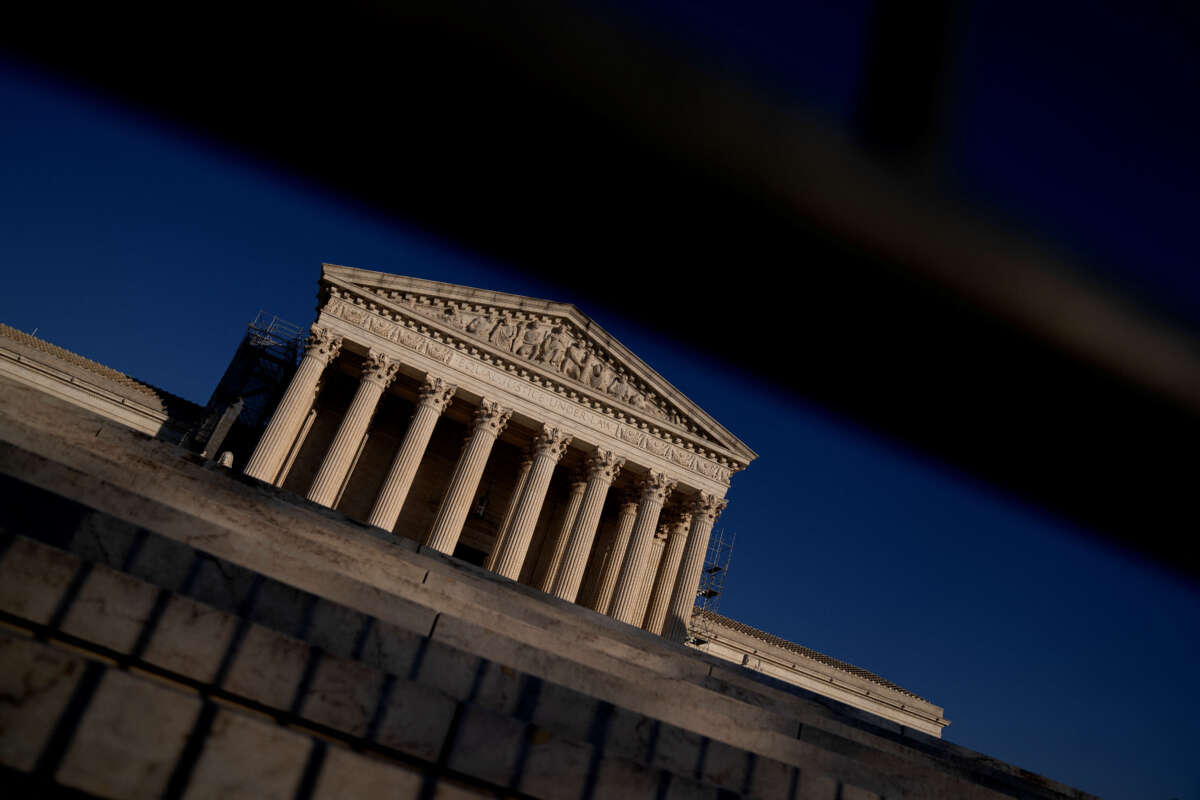The past two years have seen among the most extreme and regressive Supreme Court decisions in modern U.S. history, with conservative justices yanking away rights left and right — while also granting protections to some of the most privileged people in the U.S. The past two years of Supreme Court cases have also had a stunning amount of influence from dark money puppetmaster Leonard Leo, a new analysis finds.
According to a Politico analysis published on amicus briefs this week, Leo and his vast network are directly connected to or affiliated with nearly 70 percent of 259 conservative amicus briefs filed in the seven most high-profile Supreme Court cases over the past two years, or about 178 amicus briefs. Only about 31 percent, or less than a third, had no connection, the analysis found.
In 15 percent of the amicus briefs, Leo was either a leader or financial backer of the group behind the brief. The other 55 percent of briefs were led by groups with a leader who serves on a board with Leo or who is within a “close-knit circle of legal experts” with ties to the Federalist Society, or groups that had received funding from Leo’s network.
This is a huge number of amicus briefs, which are filed by third parties in support of a viewpoint or argument in a case, that have ties to just one person. It is revealing of Leo’s position in politics as a powerhouse manipulating the Supreme Court in the shadows, not only hand picking every single sitting conservative justice on the bench, but also reaching into cases whose outcome will affect the lives of hundreds of millions.
These briefs can have a major impact on the Supreme Court’s decisions. The Politico analysis found that language used in the briefs often showed up in the Court’s decision, and pointed out that there has been a huge surge in amicus briefs since 2010 — right after the Citizens United v. Federal Election Commission decision that also fueled a major uptick in dark money in politics.
Perhaps partially as a result of Leo’s influence, the report further found that 50 percent of amicus briefs filed in the seven cases Politico analyzed were supporting conservative parties, lending right-wingers a slight edge over liberal parties, which saw only 46 percent of briefs filed in their support. Further, the liberal groups filing briefs are more decentralized, whereas the conservative network has strong connections to each other and seemingly to Leo.
Another element that could be lending Leo and his far right network an advantage in cases is conservative justices’ intimate friendships and personal ties to Leo. Of the major figures involved in this year’s Supreme Court scandals — Paul Singer, billionaire benefactor to Justice Samuel Alito, and Harlan Crow, provider of Justice Clarence Thomas’s lavish lifestyle — all of them are connected to Leo’s network; in fact, Leo appears to have brokered the relationship between Alito and Singer.
Combined with the fact that the conservatives justices on the Supreme Court in large part owe their seats to Leo and his influence, it’s possible that Leo’s influence via the amicus briefs his network is tied to has an even larger impact on Court decisions.
“Leonard Leo has written the playbook on court corruption and dark money influence,” Accountable.US President Caroline Ciccone said in response to the report. “He leverages his web of nonprofits, his cozy relationships with decision-makers, and his handpicked Supreme Court to push his extreme agenda because he knows it will never win at the ballot box.”
